I am have read up some tutorials on ARC and am still left a bit confused on properties declarations. I wrote most most my code using the following pattern:
@property (readwrite, nonatomic) PlayerData* playerData;
@property (readwrite, nonatomic) MusicLayer* musicLayer;
@property (readwrite, nonatomic) bool isPowerUpAvailable;
Now that I finally started to deal with memory leaks XCode suggested me that in some bits of code I should have added the "retain" keyword in the property declaration.
Using ARC I thought I shouldn't "Bother" about retain counts anymore. Is there some concept I am not getting or missing? Any tutorial references or explanation would be greatly appreciated.
 Pay attention not always working before to try duplicate your project!
Pay attention not always working before to try duplicate your project!